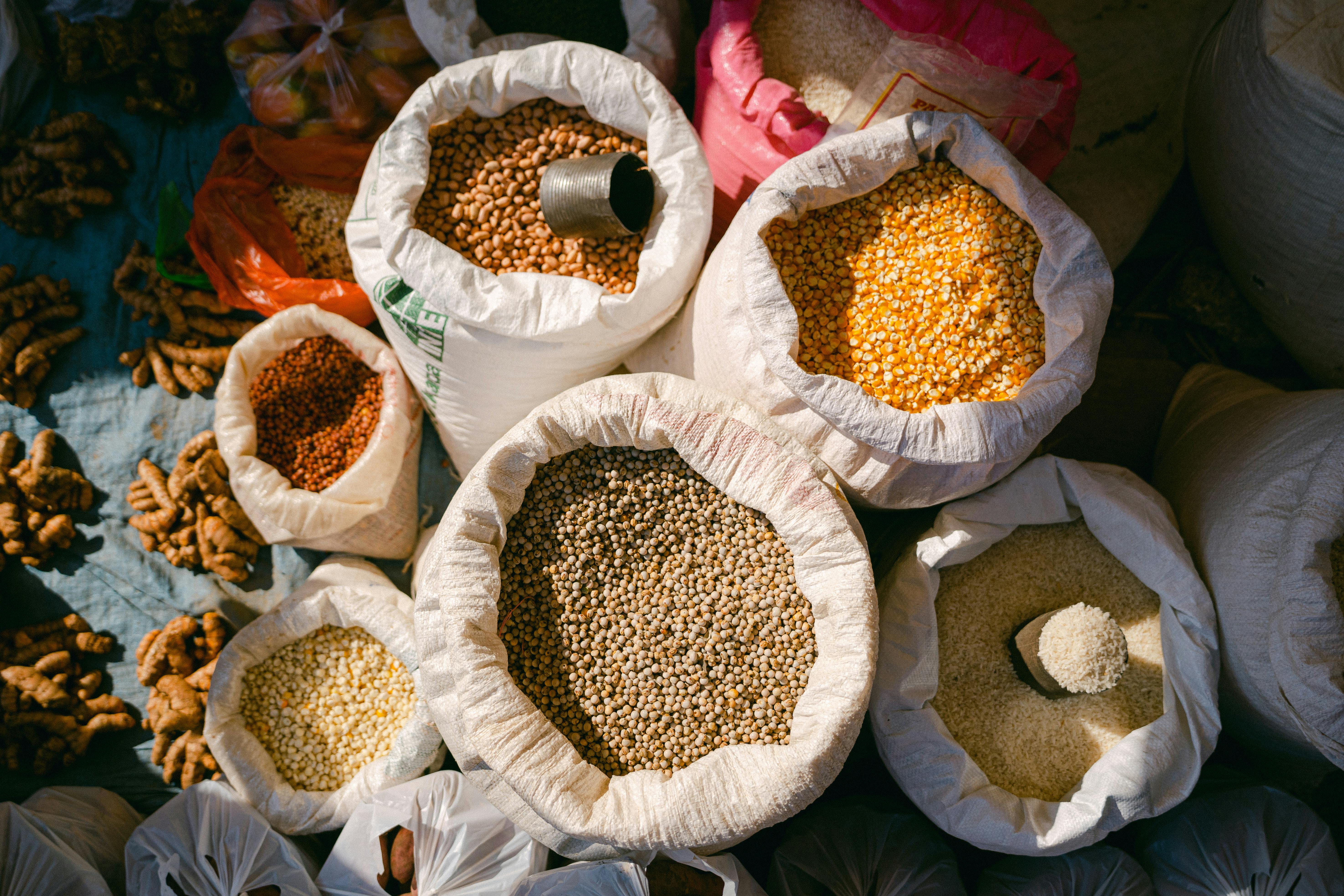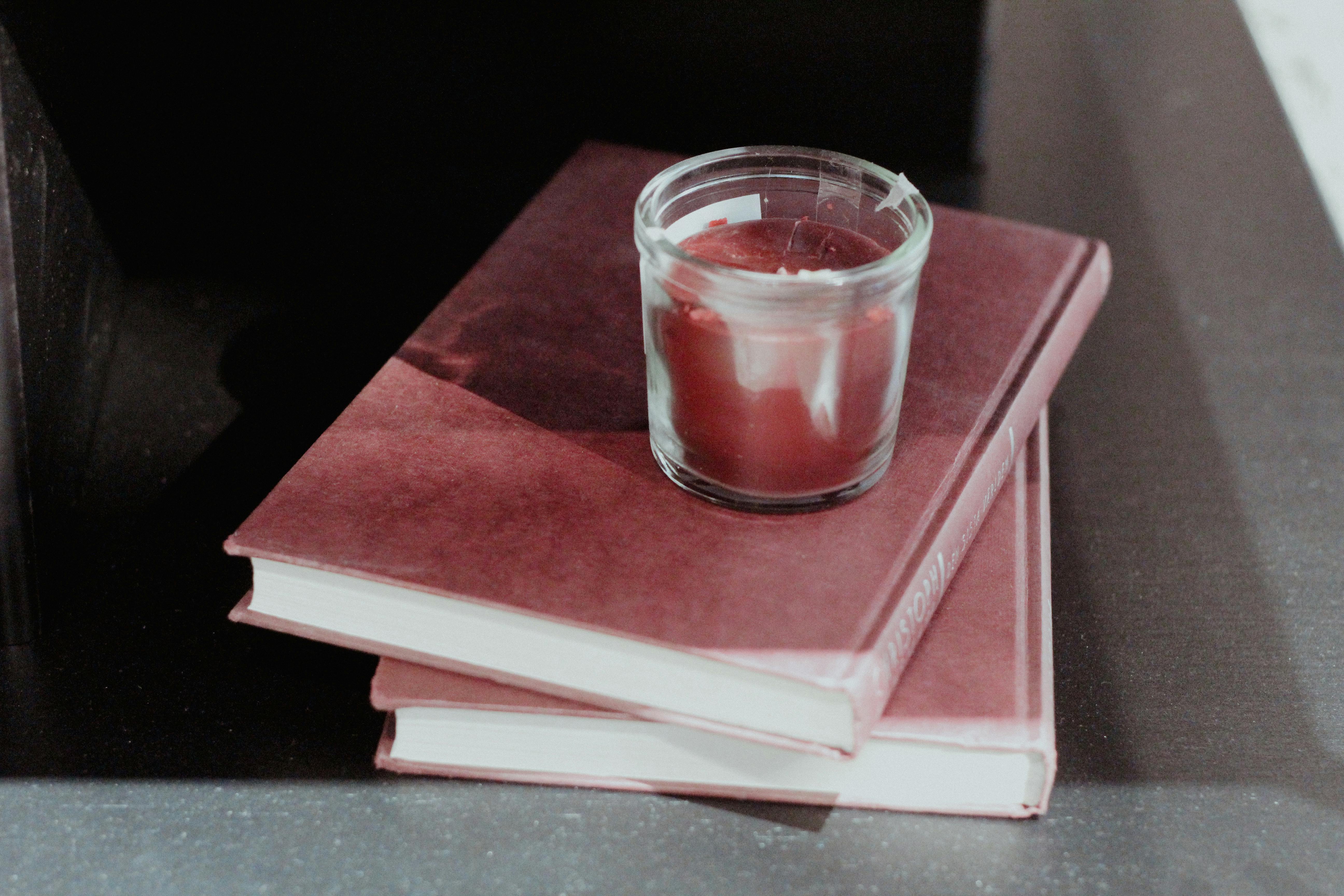In today’s fast-paced and stressful world, anxiety has become a common challenge for many of us. However, instead of immediately turning to medication or therapy, have you ever considered exploring the ancient wisdom of Ayurvedic techniques for managing anxiety? On IndianCulture.com, you can unlock the secrets of Ayurvedic medicine and delve into natural healing, holistic wellness, and time-tested remedies that have been used in India for centuries. By incorporating Ayurvedic practices into your daily routine, you may discover effective and sustainable ways to alleviate anxiety and promote overall well-being.

Understanding Anxiety in Ayurveda
Overview of Ayurveda and Anxiety
In Ayurveda, an ancient system of medicine from India, anxiety is viewed as a disturbance in the mind-body balance. It is believed to be caused by an excess of Vata dosha, which is responsible for movement and creativity, but when imbalanced, can lead to restlessness, fear, and anxiety. Ayurveda recognizes that anxiety can affect both our mental and physical well-being, and therefore offers a holistic approach to its management.
Causes of Anxiety According to Ayurveda
According to Ayurveda, there are several factors that can contribute to the development of anxiety. One of the main causes is excessive stress, which disrupts the natural balance of the doshas and weakens the nervous system. Other factors include poor diet, lack of exercise, irregular daily routine, and a disconnect from nature. Additionally, individuals with a Vata-predominant constitution may be more prone to anxiety due to their inherent tendency towards instability.
Impact of Anxiety on the Doshas
Anxiety affects all three doshas – Vata, Pitta, and Kapha. However, it primarily disrupts Vata dosha, which governs the nervous system and controls movement in the body. When Vata becomes imbalanced, it can lead to symptoms such as restlessness, insomnia, racing thoughts, and a feeling of being overwhelmed. Pitta and Kapha doshas can also be indirectly affected by anxiety, leading to irritability, anger, and a loss of appetite or digestive issues, respectively.
Ayurvedic Lifestyle Changes
Dietary Modifications for Anxiety
Ayurveda emphasizes the importance of following a balanced and nourishing diet to support overall well-being, including the management of anxiety. To calm the mind and balance Vata dosha, it is recommended to include warm, cooked foods and beverages, such as soups, stews, and herbal teas. These can help to ground and stabilize the nervous system. Additionally, incorporating foods that are rich in omega-3 fatty acids, magnesium, and B vitamins can provide further support for managing anxiety.
The Importance of Daily Routine
Maintaining a consistent daily routine is crucial in Ayurveda for promoting physical and mental balance. This includes waking up and going to bed at the same time each day, as well as eating meals at regular intervals. Establishing a routine helps to regulate the body’s natural circadian rhythms and reduces stress on the nervous system. It also provides a sense of stability and predictability, which can be calming for individuals dealing with anxiety.
Ayurvedic Exercise and Relaxation Techniques
In Ayurveda, exercise is considered essential for maintaining overall health and well-being. However, when it comes to managing anxiety, it is important to choose activities that are gentle and nurturing. Yoga, specifically poses that promote grounding and relaxation, can be beneficial for anxiety relief. Other practices such as walking in nature, tai chi, and qigong can also be helpful in reducing stress and calming the mind. Incorporating relaxation techniques like deep breathing, guided imagery, and progressive muscle relaxation further support anxiety management.

Herbal Remedies for Anxiety
Ayurvedic Herbs for Calming the Mind
Ayurveda offers a wide range of herbs that can help calm the mind and alleviate anxiety. Some commonly used herbs include Brahmi, also known as Gotu Kola, which supports mental clarity and memory; Jatamansi, which has a calming effect on the nervous system and helps alleviate stress; and Shankhpushpi, which promotes relaxation and tranquility. These herbs can be taken in various forms such as capsules, powders, or as part of herbal formulations prescribed by an Ayurvedic practitioner.
Nervine Tonics for Relaxation
Nervine tonics are herbs that have a calming and soothing effect on the nervous system. They help to reduce stress, promote relaxation, and balance the emotions. Some popular nervine tonics in Ayurveda include Ashwagandha, which is known for its adaptogenic properties and ability to support the body’s response to stress; Shatavari, which nourishes and strengthens the nervous system; and Guduchi, which helps to restore balance and harmony in the mind and body.
Herbal Teas and Infusions
Herbal teas and infusions can be a comforting and effective way to manage anxiety in Ayurveda. Chamomile tea, for example, has a calming and relaxing effect on the nervous system and can help promote restful sleep. Tulsi tea, also known as Holy Basil, is another popular choice as it helps to reduce stress, uplift the mood, and support mental clarity. Other herbs that can be brewed into teas or infusions include lavender, passionflower, and lemon balm, all of which have soothing properties.
Pranayama and Meditation
Breathing Techniques for Anxiety Relief
In Ayurveda, pranayama, or breath control, is considered a powerful tool for balancing the doshas and calming the mind. Specific breathing techniques can help regulate the Vata dosha and alleviate anxiety symptoms. One such practice is Nadi Shodhana, or alternate nostril breathing, which helps to balance the flow of energy in the body and promotes a sense of calm. Deep abdominal breathing and extended exhalation can also be effective in reducing anxiety and inducing relaxation.
Meditation Practices to Calm the Mind
Meditation is a key practice in Ayurveda for managing anxiety and promoting mental clarity. Regular meditation helps to quiet the mind, reduce stress, and create a sense of inner peace. Mindfulness meditation, where one focuses on the present moment without judgment, can be particularly beneficial for individuals with anxiety. Mantra meditation, where a specific sound or phrase is repeated, and guided imagery meditation, where one visualizes calming and peaceful scenes, are other techniques that can help calm the mind and reduce anxiety.
Mindfulness and Ayurveda
Mindfulness, the practice of being fully present and aware in each moment, is an integral part of Ayurvedic approaches to anxiety. By cultivating mindfulness, we can become more attuned to our thoughts, emotions, and physical sensations, allowing us to recognize and address anxiety triggers more effectively. Mindfulness also encourages self-compassion and acceptance, helping us to develop a more balanced and peaceful relationship with our anxiety.

The Role of Ayurvedic Massage
Abhyanga: Self-Massage for Anxiety
Abhyanga, or self-massage, is a traditional Ayurvedic practice that involves massaging warm oil into the body to promote relaxation and balance. It is highly beneficial for anxiety as it helps to nourish the nervous system, calm the mind, and reduce excess Vata dosha. The repetitive and rhythmic motions of abhyanga have a soothing effect on the body and can help alleviate anxiety symptoms such as restlessness and racing thoughts. Using grounding oils such as sesame or coconut oil with calming essential oils like lavender or chamomile can enhance the anxiety-relieving effects of abhyanga.
Shirodhara: Therapeutic Oil Flow
Shirodhara is a unique Ayurvedic therapy that involves pouring a continuous stream of warm oil onto the forehead, specifically the “third eye” area. This therapy has a deeply relaxing effect on the nervous system and can help alleviate anxiety by promoting a sense of calm and tranquility. The gentle flow of oil stimulates the release of serotonin, a neurotransmitter that promotes feelings of well-being and contentment. Shirodhara is often recommended for individuals with anxiety, insomnia, and stress-related disorders.
Pada Abhyanga: Foot Massage for Grounding
Pada Abhyanga, or foot massage, is another Ayurvedic practice that can be beneficial for anxiety relief. Massaging the feet with warm oil not only helps to ground and calm the mind but also improves circulation and lymphatic flow. This can help release stagnant energy and reduce feelings of restlessness or “wandering mind” often associated with anxiety. Incorporating relaxing essential oils such as sandalwood, vetiver, or frankincense can enhance the grounding and calming effects of pada abhyanga.
Ayurvedic Aromatherapy
Essential Oils for Anxiety and Stress
Aromatherapy is a powerful tool in Ayurveda for managing anxiety and promoting emotional well-being. Essential oils can be used in various ways, including inhaling their aroma, applying them topically, or using them in baths or massage oils. Some essential oils that are beneficial for anxiety and stress include lavender, which has a calming and relaxing effect; bergamot, which uplifts the mood and reduces stress; and ylang-ylang, which promotes feelings of joy and harmony.
Creating a Calming Atmosphere
Creating a calming atmosphere at home or in the workplace can greatly support anxiety management. Ayurveda suggests using soothing colors, soft lighting, and natural materials to create a peaceful environment. Placing plants, such as lavender or jasmine, can also infuse the space with a calming fragrance. Additionally, using natural materials, such as organic cotton or silk, for bedding and clothing can enhance feelings of comfort and relaxation.
Ayurvedic Oil Diffusion Techniques
Diffusing essential oils in the air is an effective way to benefit from their calming and anxiety-reducing properties. Ayurveda recommends using ultrasonic oil diffusers or oil burners for this purpose. Lavender, chamomile, and sandalwood are popular choices for promoting relaxation and reducing anxiety when diffused in the air. It’s important to use high-quality, pure essential oils and follow the manufacturer’s instructions for safe and effective diffusion.
Ayurvedic Supplements
Brahmi: The Herb of Memory and Mental Clarity
Brahmi, also known as Bacopa monnieri, is a renowned Ayurvedic herb that supports memory, mental clarity, and cognitive function. It is considered a powerful adaptogen that helps the body adapt to stress and promote a sense of calm. Brahmi capsules or powders are often recommended for individuals dealing with anxiety and stress-related disorders. Regular use of Brahmi can help improve concentration, reduce mental fatigue, and enhance overall well-being.
Ashwagandha: The Stress Adaptogen
Ashwagandha, also called Withania somnifera, is a popular Ayurvedic herb known for its stress-relieving properties. It is classified as an adaptogen, which means it helps the body adapt to physical, mental, and emotional stressors. Ashwagandha supports the adrenal glands, which play a crucial role in the body’s stress response. By nourishing the adrenals and restoring balance to the body, Ashwagandha can help reduce anxiety, promote relaxation, and improve overall resilience to stress.
Jatamansi: Nerves and Emotional Balance
Jatamansi, or Nardostachys jatamansi, is a revered Ayurvedic herb that has been used for centuries to support the nervous system and promote emotional balance. It is particularly beneficial for individuals dealing with anxiety, restlessness, and nervous exhaustion. Jatamansi helps calm the mind, reduce excessive mental activity, and promote a sense of tranquility. It can be taken as a powder, capsule, or incorporated into herbal formulas prescribed by an Ayurvedic practitioner.
Yoga Therapy for Anxiety
Asanas for Anxiety Relief
Yoga, a sister science of Ayurveda, offers a powerful tool for managing anxiety. Specific yoga asanas, or postures, can help calm the mind, reduce tension in the body, and promote relaxation. Standing poses such as Warrior II and Triangle pose are grounding and stabilizing, while forward bends such as Child’s pose and Seated Forward Bend encourage introspection and surrender. Inversions like Legs-Up-The-Wall pose and Supported Headstand can help shift the perspective and bring a sense of calm. Regular practice of these asanas, along with mindful breathing, can significantly reduce anxiety symptoms.
Yoga Nidra: Deep Relaxation and Healing
Yoga Nidra, also known as yogic sleep, is a powerful technique for inducing deep relaxation and healing. It is a guided meditation practice that systematically relaxes the body and mind, allowing for a state of profound rest and rejuvenation. Yoga Nidra promotes inner awareness, reduces anxiety, and helps release tension and stored emotions. Regular practice of Yoga Nidra can improve sleep quality, enhance self-awareness, and provide a sense of peace and clarity.
Yoga Practices for Balancing the Mind
In Ayurveda, it is believed that an imbalanced mind can contribute to the development of anxiety. Therefore, practices that bring balance to the mind are essential for managing anxiety. Pranayama, mentioned earlier, is one such practice that helps regulate the breath and calm the mind. Other practices include chanting or repeating positive affirmations, which can help redirect negative thoughts and promote a sense of peace. Yoga practices that emphasize stillness, such as gentle stretching, restorative poses, and Savasana (corpse pose), can also be beneficial in calming the mind and reducing anxiety.
Ayurvedic Mind-Body Techniques
Marma Therapy for Emotional Release
Marma therapy is an ancient Ayurvedic healing technique that involves the manipulation of vital energy points on the body. These energy points, known as marma points, are believed to affect physical, mental, and emotional well-being. Through gentle pressure and massage, marma therapy can help release blocked energy and emotions, promote emotional balance, and reduce anxiety. Seek the guidance of an experienced Ayurvedic practitioner to learn and receive marma therapy.
Nasya: Nasal Ayurvedic Treatment
Nasya is a traditional Ayurvedic treatment that involves the administration of herbal oils or powders through the nostrils. It is believed to help balance the doshas, especially Vata, and promote mental clarity and emotional stability. Nasya can be beneficial for anxiety as it helps purify the nasal passages, relieve congestion, and enhance the flow of prana (life force energy). It is best performed under the guidance of an Ayurvedic practitioner.
Shiro Abhyanga: Head Massage for Tranquility
Shiro Abhyanga, or head massage, is a gentle and relaxing Ayurvedic practice that helps calm the mind and nervous system. It involves massaging warm oil into the scalp, forehead, and temples to promote tranquility and release tension. Shiro Abhyanga can be done using a variety of oils, such as Brahmi or lavender-infused oil, to enhance its anxiety-reducing effects. Regular practice of Shiro Abhyanga can help alleviate anxiety symptoms such as headaches, insomnia, and mental fatigue.
Ayurvedic Counseling and Support
Finding an Ayurvedic Practitioner
Seeking the guidance of an experienced Ayurvedic practitioner is invaluable when managing anxiety. A qualified practitioner can assess your individual constitution, identify the root cause of your anxiety, and create a personalized treatment plan. They can provide guidance on lifestyle modifications, recommend specific herbs and supplements, and offer ongoing support throughout your healing journey. It is essential to find a practitioner who is certified and knowledgeable in Ayurveda.
Individualized Treatment Plans
Ayurveda recognizes that each individual is unique and requires individualized treatment plans. When it comes to managing anxiety, an Ayurvedic practitioner will take into consideration your specific imbalances, constitution, and lifestyle factors to create a comprehensive treatment plan. This may include a combination of dietary recommendations, herbal supplements, lifestyle modifications, mind-body techniques, and ongoing support. The aim is to restore balance and promote overall well-being.
Ayurvedic Support for Anxiety Disorders
While Ayurveda offers many effective tools for managing anxiety, it is important to note that severe or chronic anxiety disorders should be addressed by a qualified healthcare professional. Ayurveda can be used as a complementary therapy alongside conventional treatment to support emotional well-being and enhance overall healing. Open communication with both your Ayurvedic practitioner and primary care provider is essential to ensure a holistic and comprehensive approach to managing anxiety.
In conclusion, Ayurveda provides a holistic approach to understanding and managing anxiety. Through dietary modifications, lifestyle changes, herbal remedies, mind-body techniques, and personalized support, Ayurveda offers a comprehensive toolkit for promoting balance, reducing stress, and cultivating peace of mind. By incorporating these Ayurvedic techniques into our lives, we can begin to unravel the grip of anxiety and embark on a journey of healing and well-being.